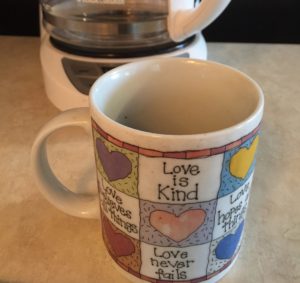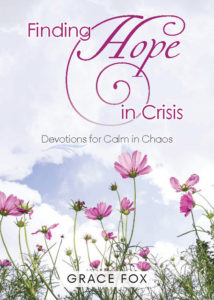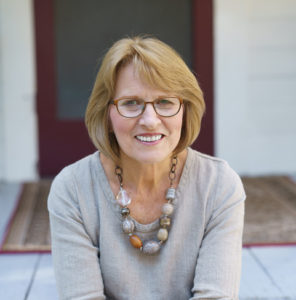 It was one o’clock in the morning as I tossed and turned in bed. Two huge problems loomed before me the next day, and I didn’t know how I would solve either one. Restlessly, my mind churned through a myriad of possibilities, searching for answers. Tired and longing for sleep–which refused to come, I sighed and again looked at the clock.
It was one o’clock in the morning as I tossed and turned in bed. Two huge problems loomed before me the next day, and I didn’t know how I would solve either one. Restlessly, my mind churned through a myriad of possibilities, searching for answers. Tired and longing for sleep–which refused to come, I sighed and again looked at the clock.
1:30
It was easy to see where this night was headed.
Okay, I thought, I’ve been down this road before. I’m going to lay awake all night worrying and then be so tired tomorrow I won’t be able to do what is needed to actually resolve this situation. This is so pointless. I need to go to sleep.
And then I prayed.
Earlier that morning, I had been reading in Isaiah 30 and 31 about God’s displeasure with Judah when they were besieged by the Assyrians. Instead of trusting God and looking to Him for guidance, they went down to Egypt to solicit help. Even though He, the almighty God had saved them from their enemies on so many occasions and showed them signs and wonders throughout their history, the Jewish people chose to go their own way and seek help from mere men who worshipped pagan gods rather than going to their powerful creator God.
Yet, the threat was very real. The Assyrians were a great and powerful army, and the Jewish nation in the natural had no possible way of standing against them. And even though it was thousands of years ago, it wasn’t too hard to relate to their dilemma. Earthly problems appear to need earthly solutions, don’t they? Spiritual principles don’t seem relevant when we need practical answers. God is wonderful, but what does He have to do with complicated earthly situations that plague our lives?
Well—everything.
Had Judah used their spiritual eyes, remembering the way God had rescued them in the past and trusting Him to do it again, Isaiah tells us they would have enjoyed God’s favor and been saved. Instead, they turned to worldly resources. As a result both they and the Egyptians came to ruin because the Jewish people relied on themselves instead of God.
As the memory of this scripture drifted through my thoughts, the words, “Don’t go down to Egypt” began circling through my head as well. I knew God was speaking to me.
“Don’t look to worldly solutions,” he was saying. “Don’t worry about how these things will be resolved. Trust me. I will give you peace.”
Don’t go down to Egypt.
Another story from the Bible popped into my mind too—the story of King Hezekiah. A fierce and powerful Assyrian army came against him also and demanded his surrender. But Hezekiah went to God, laid all the facts before Him, and prayed, praising God and acknowledging Him as creator and ruler of all. The next morning, thousands of Assyrian soldiers were dead before one arrow had been shot into the city. Judah was saved.
As I thought about God’s promises for those who trust in Him, I began to pray and surrendered my problems to God. Gradually, my body relaxed and before long I drifted off to sleep.
I awoke the next morning to these words from Jesus Calling, a devotional book I often read to start the day.
“I am able to do far beyond all that you ask or imagine. . . . Do not be discouraged by the fact that many of your prayers are yet unanswered. Time is a trainer, teaching you to wait upon Me, to trust Me in the dark. The more extreme your circumstances, the more likely you are to see My Power and Glory at work in the situation. Instead of letting difficulties draw you into worrying, try to view them as setting the scene for My glorious intervention. Keep your eyes and your mind wide open to all that I am doing in your life.”
( Jesus Calling by Sarah Young)
Don’t go down to Egypt.
God reaffirmed to me through Sarah Young that He was able to take care of my predicament. I was not to go down to Egypt. I was to lay my problems at his feet.
As a result, the troubles that had kept me awake that night gradually took a favorable turn. As God’s peace descended upon me and I continued to surrender the situation to Him in prayer, God opened a path through a seemingly complicated situation to make it not only workable, but perfect in God’s timing according to His inexplicable plan.
So remember: When problems or worries bog you down and you’re tempted to take things in your own hands. Trust God. Don’t go down to Egypt.
Are problems in your marriage keeping you from sleeping at night? If so, my book, Fighting for Your Marriage while Separated, might provide some of the answers you’re looking for.





 As a freelance writer, Joan Benson has produced devotional materials for CBN.com, written numerous magazine articles (most recently for LifeWay’s ParentLife and Regent University’s The Christian Leader). Her debut historical fiction novel,
As a freelance writer, Joan Benson has produced devotional materials for CBN.com, written numerous magazine articles (most recently for LifeWay’s ParentLife and Regent University’s The Christian Leader). Her debut historical fiction novel,  Dreams can come true – even in the midst of uncontrollable circumstances.
Dreams can come true – even in the midst of uncontrollable circumstances.









